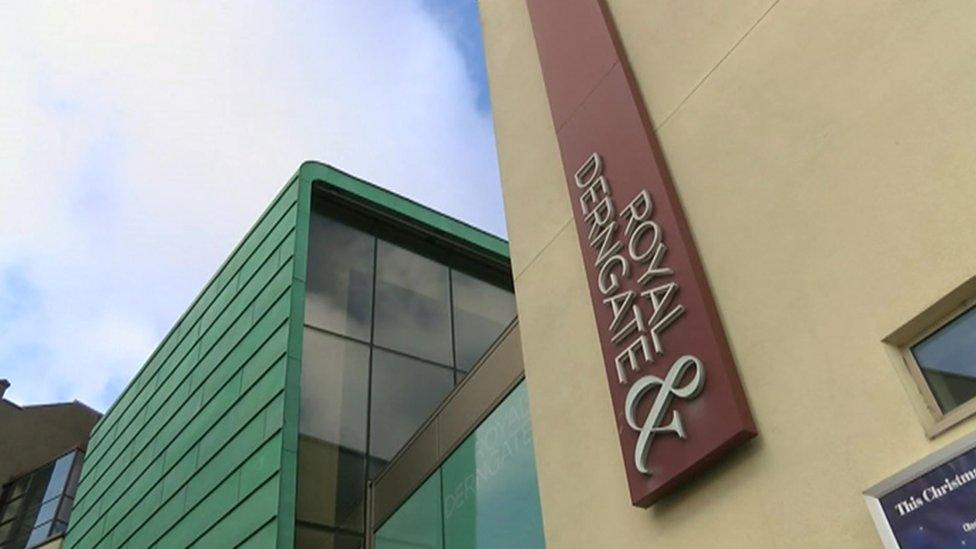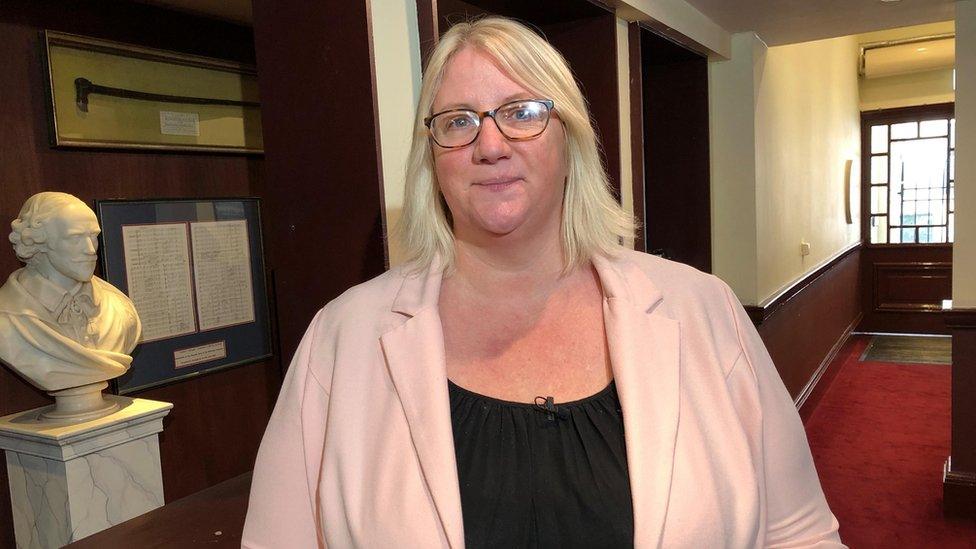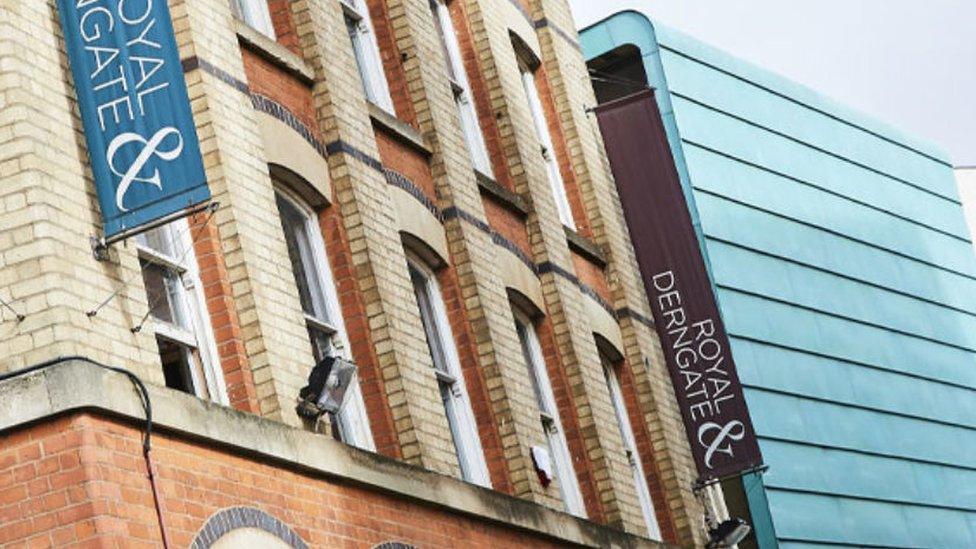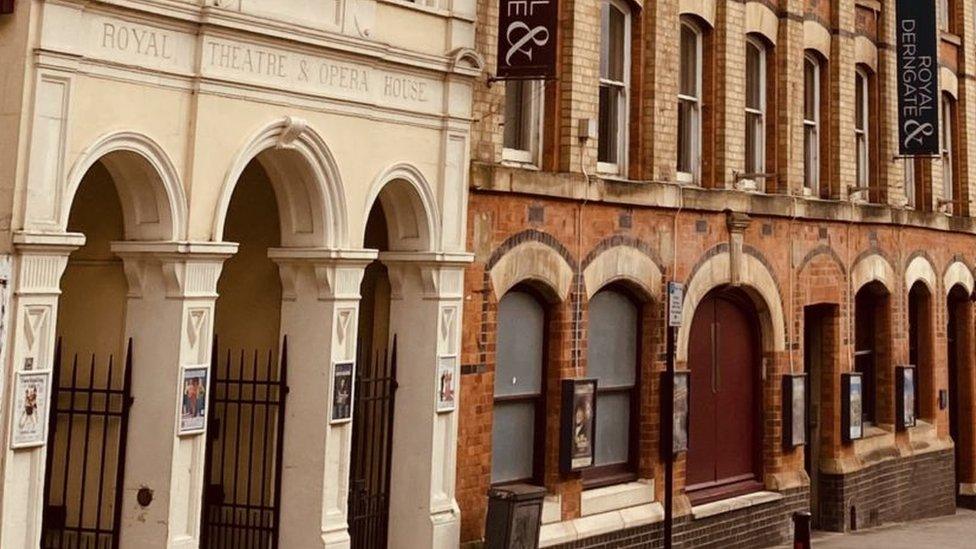Royal & Derngate's Raac not as bad as first feared
- Published

The Royal & Derngate in Northampton has to closed in September due to Raac
Crumbling concrete which forced a theatre to close for a month was not as bad as first feared, its chief executive said.
The Royal & Derngate in Northampton shut its doors in September when reinforced autoclaved aerated concrete (Raac) was found.
It reopened in October but parts of the foyer are still closed.
Theatre chief executive Jo Gordon said she was worried it would be "closed again for a longer period".
The venue consists of two theatres, the Derngate auditorium, with a capacity of 1,500, and the Royal theatre, which can hold 450.
The Royal dates back to the 1800s but Derngate was built in 1983 when Raac was widely used.

Chief executive Jo Gordon said she working to keep the theatres open during the Raac repairs
Ms Gordon said: "The auditoriums are completely untouched.
"We've try to dress [the foyer] up and make it as great as we can.
"It's a pain walking around the scaffolding, having to go into specific entrances but audience are being really patient".
Raac's lifespan has largely expired - leading to many schools and other buildings across the UK being forced to close in recent times.
Ms Gordon said: "The good news is the recent Raac tests that have come back suggest, if you can have such a thing, it's good Raac.
"It means some of the repairs, some of the mitigation, we can get started on straightaway.
"It's not the kind of thing that would need a full roof replacement, which was one of the worries in the back of the mind."

A meet and greet with Northamptonshire comic James Acaster is being auctioned as part of the theatre's 40th birthday celebrations
She said she hoped the work would be done "between now and the summer".
"It's awkward but we are operating at full capacity," she said.
The Derngate has begun a series of events in celebration for its 40th birthday, which was last year, but delayed because of the closure.

Follow East of England news on Facebook, external, Instagram, external and X, external. Got a story? Email eastofenglandnews@bbc.co.uk, external or WhatsApp 0800 169 1830
Related topics
- Published5 February 2024

- Published16 October 2023
